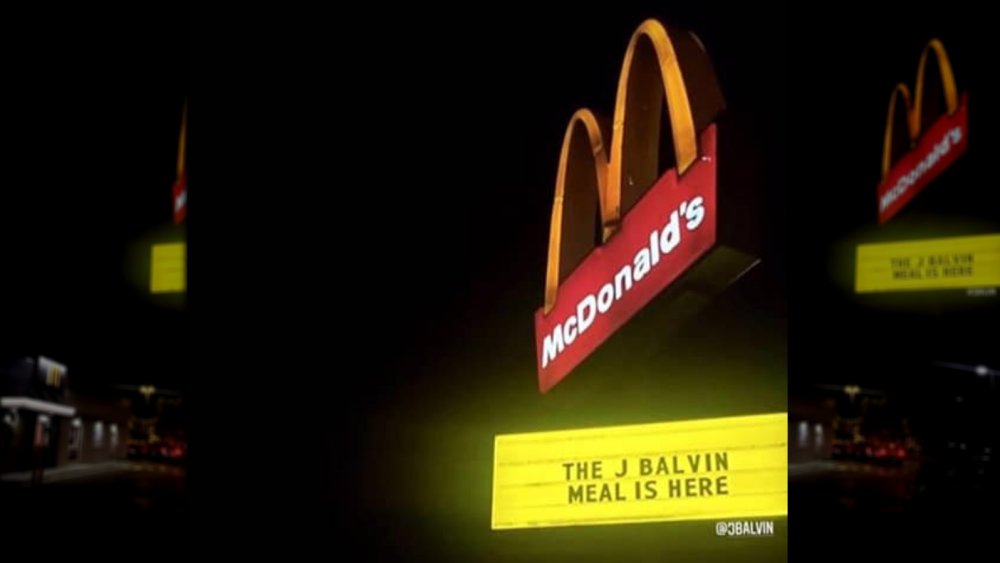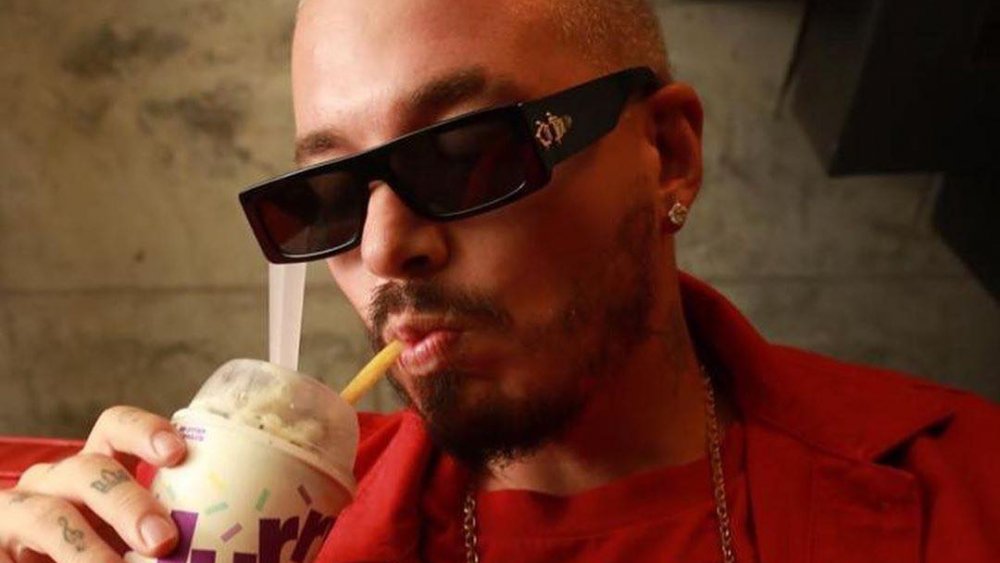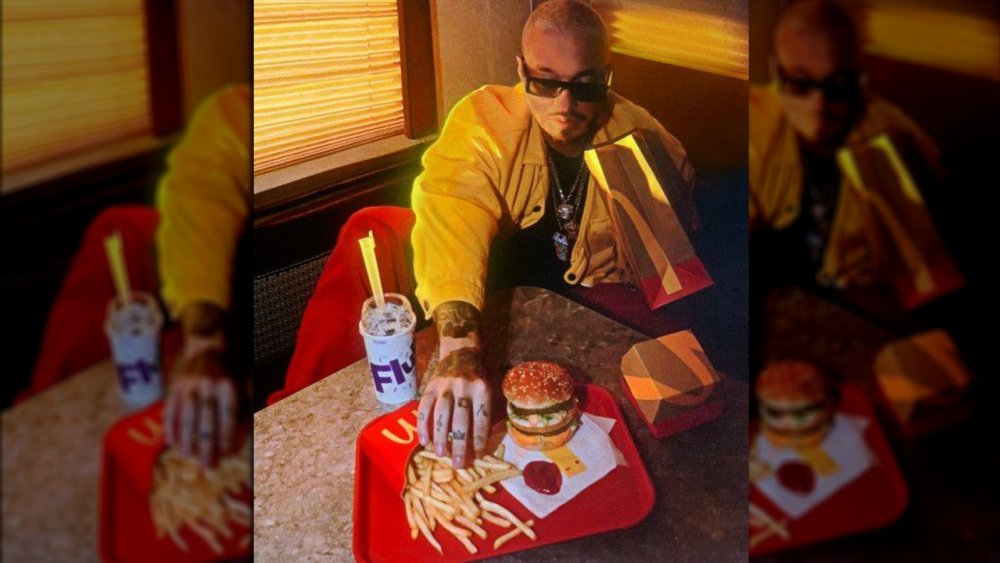What Makes McDonald's J Balvin Meal So Concerning
Reggaeton star J Balvin has been having quite a year. The Colombian artist kicked things off by rocking the house (well, stadium) with a sizzling Super Bowl half-time performance alongside fellow Latino artists Bad Bunny, Shakira, and J. Lo. In October, Balvin reached yet another pinnacle of success, being the second celebrity honored in the space of a single season by McDonald's with a namesake meal.
McDonald's selection of Balvin as one of its spokes-celebs was seen by some as an attempt to woo younger, multicultural consumers, although some also suspect it's more of a "too little, too late" effort for the company to appear more woke than is actually the case. Politics aside, the J Balvin meal really isn't anything too exotic. All it is, is a Big Mac sans pickles, fries with ketchup, and an Oreo McFlurry (this last item available only if you're lucky enough to live by a McDonald's where the soft-serve machine actually works). Still, if it proves to be anywhere near as popular as the Cactus Jack meal, it's bound to be a best-seller.
Just like the Travis Scott meal, however, as well as the also-trending Charli D'Amelio Dunkin' drink, McDonald's latest celebrity meal is worrying some nutritionists nationwide. We spoke with Nicole Avena, PhD, Assistant Professor of Neuroscience at Mount Sinai School of Medicine and Visiting Professor of Health Psychology at Princeton University, in order to get some insight into that point of view.
Celebrity endorsers have too much influence
Why, when famous folks are used to influence consumer decisions, does it seem they always use their power for evil instead of good? You never see any celebrities endorsing, say, the banana (with the exception of the late Carmen Miranda, who was known to wear the fruit on her head). Avena explains that the reason celebrity endorsements are so effective is that they are "a way in which fans can feel connected to a celebrity by being like them in a specific way — by eating the foods that they are promoting and presumably like." She says this type of advertising is more effective with younger people, as they tend to be more influenced by the words and actions of their favorite stars.
Avena brings up the serious issue of food addiction, and the worry that celebrity endorsements for fast foods and snack foods "is another way in which unhealthy foods are being marketed toward young people." She says that this type of marketing, and the addictive eating it fuels, can, in time, "lead to serious health problems, like cardiovascular disease, obesity, metabolic syndrome, diabetes, etc."
The J Balvin meal menu items are hardly McDonald's healthiest offerings
Avena isn't too impressed with the effort McDonald's (or Balvin) put into designing this meal, saying the chain is "simply repackaging some of their menu items together under J Balvin's name." She says it has nothing to do with the chain wanting to offer anything new or different, but rather, just a case of "pick[ing] a popular celebrity who has a lot of fans that frequent McDonalds."
Avena voiced concerns that "of all the items on the McDonald's menu, that there isn't one thing included in this bundle that is remotely healthy." She says "Even if they added apples in along with the McFlurry, at least it would have helped to bring attention to the importance of having at least one healthy item in your lunch or dinner." She asserts that "It would be nice if celebrities could use their influence when they partner with big companies like McDonald's to try to improve the dietary choices that are being made, especially among youth," but, in light of the situation as it really exists, she herself offers this suggestion: "Don't take your diet advice from celebrities... take it from your doctor." Perhaps not advice that's going to be listened to by Balvin's younger fans, but we can always hope that the next celebrity approached by McDonald's will opt for endorsing a grilled chicken salad or one of the chain's other healthy-ish offerings.


